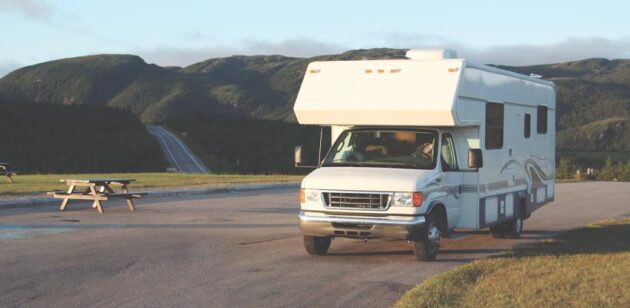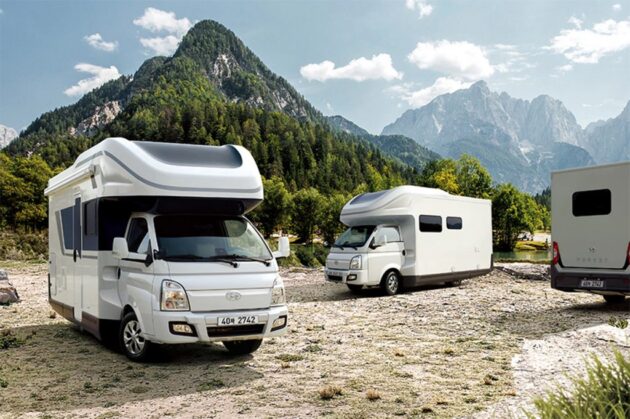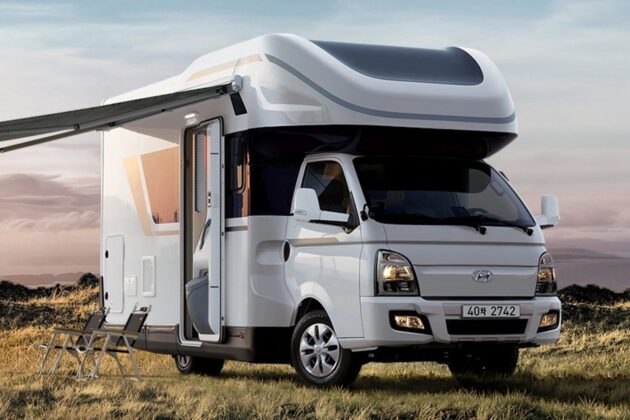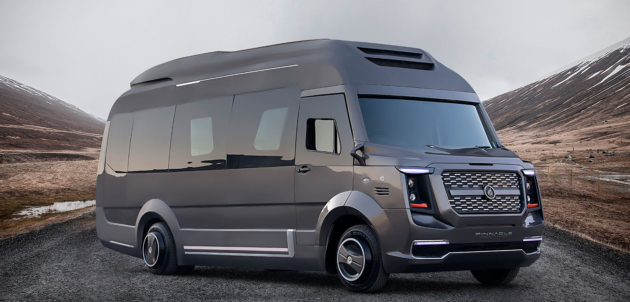Buying an RV is a dream investment for any adventure junkie. However, not everyone can afford to buy a brand new rig. Luckily, thanks to some unique marketplaces like Zervs, you can get your hands on pre-owned camper van at a fairly reasonable price.
The problem is that many people end up making a lot of rookie mistakes when buying a used camper. They may be a cheaper option, but you still shell out quite a good amount of money, nonetheless. Besides, if you buy a used rig recklessly, you will most certainly deal with maintenance issues later on.
To avoid all these barrages of problems, you should take certain preventive measures. Here are some of the most common rookie mistakes to avoid while buying a used RV.
1. Buying a used RV unseen

Never buy a rig without inspecting it yourself. That is RV buying tip 101. Imagining someone buying a used motor home without seeing it may sound preposterous. But, they do happen. This usually happens when the deal is too good to good to be true. Sellers may offer their used recreational vehicle at incredible pricing, tempting the buyers to seal the deal right away!
If you are faced with a similar situation where a deal sounds too good to be true, it probably is. A cheap price tag is not always the best option. It may come with certain hidden costs in the long run. So, make sure you do not fall into the “deal of a lifetime” selling tactic.
2. Not checking for signs of wear and tear
In many cases, buyers mainly focus their attention on the internal features of the RV. However, checking its physical condition is just as important. The physical condition of a mobile home plays a crucial role in keeping you warm and safe when you go out into the woods. Many sellers may have you believe that their trailer is in top-notch condition. But, such statements can be quite misleading at times.
Make sure to check every nook and corner of the trailer before you buy it. One of the vital signs to check is the formation of moss and other fungus growth. Their presence usually means the trailer’s good days are long gone. Spotting them can also be a tricky task. They are usually present in small corners on the roof, floors, and even closets. Inspect all the corners with flashlights to ensure there is no fungus growth.
3. Not checking the engines

A Recreational Vehicle is not just about its fancy camping-friendly features. The power it packs under the hood is just as important. Now, this may not apply to every type of trailer in the market. For instance, towable campers and trailers do not require this inspection.
However, if you are looking at Class A, B, or C motorhomes, checking their engines should be one of your priorities. You can do this by taking a driving test or checking the engine parts manually. While you are at it, try to find out about any recent engine breakdowns and repairs. Doing this will save you a lot of trouble when you take it out for a ride.
4. Buying from an unreliable marketplace
Finding a used RV deal on the web is just a google search away. But, can you really trust every website that pops up on your screen? If your answer is yes, you are headed straight for disaster. Due to the sheer number of online motor home marketplace, you can never be too sure of their authenticity. You may find the product description to be highly inaccurate in many cases compared to the actual trailer. You may also end up spending quite a substantial amount for a fairly decent camping bus.
On the contrary, a reliable motor home marketplace like Zervs offers you some of the best and genuine pre-owned campers and trailers. It offers a one-solution to all your RV needs with utmost convenience. All the RVs listed on the website go through strict inspection procedures by automobile experts. Simply put, you can trust the genuine quality of their Rvs with your eyes closed. The pricing is fair, and there are no hidden costs as well.
In a nutshell, you can get your hands on a reliable pre-owned RV while also making a substantial saving; what more do you need?
5. Not considering the tow weight

Unless you plan on buying a self-motorized RV, you should always keep your eyes on the tow weight. For instance, lightweight campers are an ideal choice for people who drive regular SUVs. On the other hand, if you move up to larger camping bus options like a fifth-wheel, you will need heavy-duty pickups. So depending on what type of cars you have in your garage, you should pick the most appropriate trailer. By the way, even the smallest camper can be very comfortable, read here an overview of the smallest camper.
It is also vital to understand that big trailers are not the easiest to maneuver around tight parking spaces. It can also be a tricky task to tow large trailers and go offroading as well. Take all such towing factors into account before you blindly seal a deal with the next RV you see.
Final Thoughts
You will not believe how many people make silly mistakes when purchasing an RV. There is nothing worse than realizing you made the wrong camper investment. Returning them or asking for refunds may also not be as simple as you might imagine.
To cut a long story short, a small mistake on your part can become your worst nightmare. Hopefully, you will follow all the above preventive measures for a smooth and hassle-free RV buying experience.
